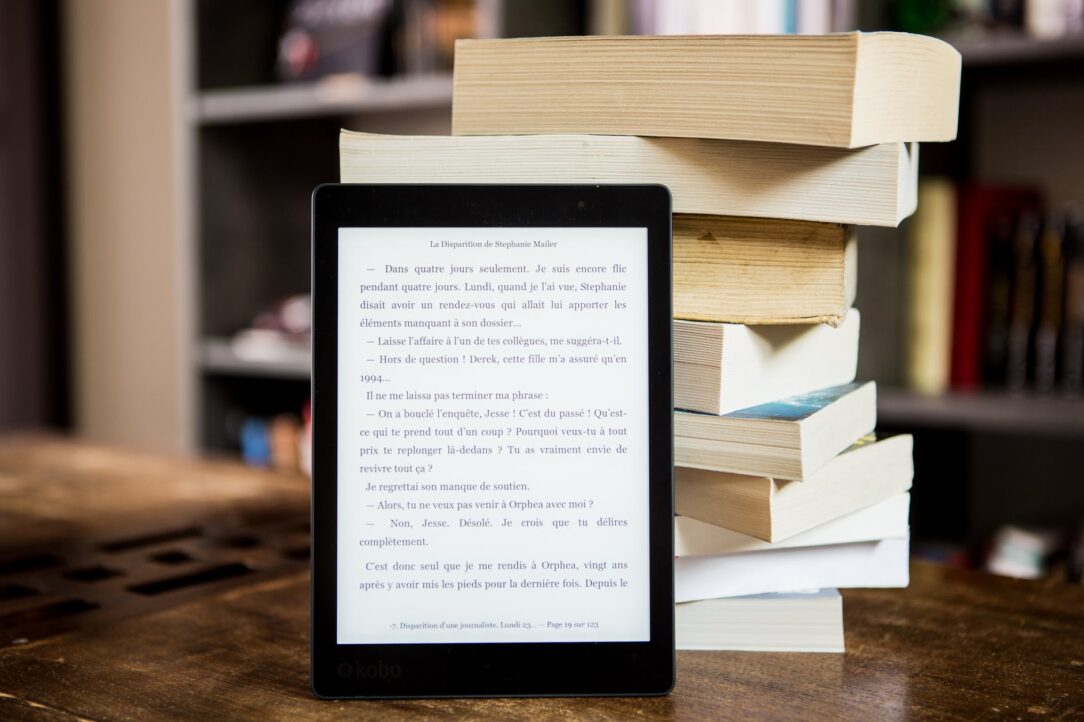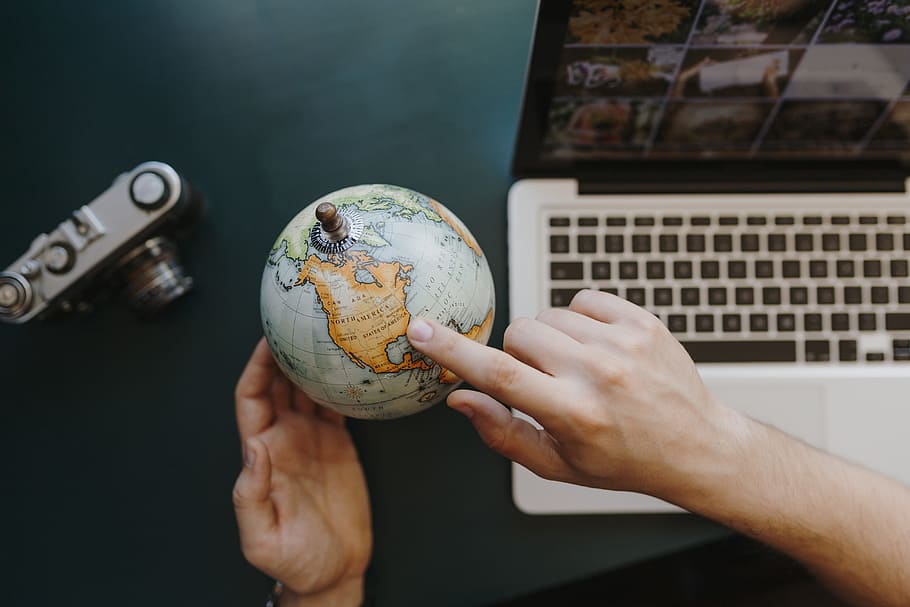Initially, learning a new language can be difficult. So what if you’re at the stage where you are comfortable with sentence structure but feel inadequate when it comes to the vocabulary part?
How in the world are you supposed to learn all the words that you know in your own language in a foreign language? By learning one step at a time. And that is going to take time and patience, my friend. But don’t worry, below are a few helpful hints on ways to help you improve on the words you already know.
Reading is FUN-damental

Source: pexels.com
You heard this time and time again in grade school. And time and time again your teacher was right. Reading material over time got you to where you are today with your vocabulary and reading skills. Think back to how you learned all your big words. It all kick-started by reading, “See spot run.” and “Jack and Jill went up the hill…” at first. Simple baby steps in reading. Learning a new language is no different. Find yourself a children’s book or something written in small short sentences that can be easily comprehended. In time you can work your way on up to something more mature.
Also, on online services such as StudyEssay, there are a few research papers that say reading something funny will help you take in phrases that can help you communicate in the language you’re learning more easily. Begin to highlight or underline words you don’t know. Take the time to look up each word you have highlighted and look them up in a translation dictionary or with online translators. It might help to have a book with 30-60 pages in it to avoid feeling overwhelmed. Often times defining unknown words online is the best way to translate because you can enter in phrases that your handheld dictionary might not contain the meaning of. Your pages may be riddled with ink like a tat-obsessed teenager but you’re still learning the language right? Well, that’s all you need to worry about.
Play It Up!

Source: pexels.com
Make a game out of your learning or find games that will help you better learn and memorize words. Crossword puzzle and word search books in another language can give you plenty of words to work with for you to translate. Even taking puzzles in your own language and finding the translations for them in the language you’re learning can be useful. There are also programs that can make these types of puzzles. Making several puzzles with the same words but jumbling up the clues on each one can keep you on your toes and from memorizing words in a certain order.
A good website to go to for crossword puzzle making is Eclipsecrossword.com. It’s a great tool to create your own crossword puzzles intermingling words in your own language with the words of the language you’re trying to learn. While you’re at it, use the words you’ve highlighted and underlined in your book as clues for your crossword puzzle. Then the next time you read your book you can just read right on through!
Another age-old game is by purchasing flashcards. Have a friend hold up flashcards and try to take a good guess at the translation. If necessary, to save on cash, make your own cards with a variation of pictures and words. Friends can also make up a few rounds of Hangman clues and answers to help challenge you too. Most of these types of items or similar games can be found in bookstores or for free online. And don’t forget the empowering technology of your smartphone. Plenty of apps can be found for learning a new language. Just make sure you find apps that are accurate in translating words.
Have a Convo with Your Pet

Source: pexels.com
Okay, okay, you don’t have to go that far but talking aloud to yourself and talking in the language you’re learning to others, can help you get more comfortable. Giving you the ability to speak freely to native speakers without feeling awkward or out of place. Reciting sentences on a tape recorder can also be another way of hearing your enunciation and the flow of how you speak. But seriously, if you can’t find a friend that is willing to hear your babbling on in another language, give Fido a try. They can’t talk back or cover their ears in agony.
In the process, you will be comfortable speaking to someone versus just learning how to use everything in the 1st person tense. Say this to your furry loved one in the language you’re trying to learn: “Would you like a bowl of water, Cuddles?” See, how easy was that? You’re already on your way to speaking to passerbyers on the street.
Put A Label On It

Source: pexels.com
Go and buy yourself sticky (post-it) notes or get a label maker and go to town tagging everything in sight from the doorknob to all the items in your fridge. These are everyday items that you use and see in your life so why not, especially, be familiar with their foreign counterparts?
For starters, simply make a list of everything in your refrigerator and post it to the outside of the refrigerator door. You could place a label on everything inside but with the hustle of grabbing milk you might knock off the sticker for orange juice and when placing them back on the product you might switch them up. And when ordering cereal in another country, wanting skim orange juice in your cereal might be questioned.
See how that can be a dilemma? So when you’re about to get that item out scan down your list and say aloud the name of the item in its foreign meaning. The same thing goes with other areas in your home. In no time at all, you will know what that bowl you wash your face out of or your fave vegetable is when you visit that country. It may look as though your house was invaded by the sticky note monster but your vocab will improve that much more.
Just Push Play

Source: piqsels.com
Probably when you first began your journey of learning a new language you did a series of cassettes. Yes, I said cassettes, and listened to them drone on and on with their mono-toned speech. But you gave it an effort because you felt it was helping you. But did you have the visuals to help back it up? Probably not. Or did you have some lame workbook in black and white print? Well today you have systems like Rosetta Stone that can help you learn interactively while immersing you in the language.
Scouring YouTube for language learning programs that others broadcast, can also help you learn new languages with videos of others willing to give you a helping hand in learning a new language.
Movie watching and listening to the radio is also an added mode of immersing yourself in the language. Start a movie in the language you are learning and see how much you can pick up words that you are familiar with. Hearing the language and reading the language are two totally different ways of learning. With hearing and seeing the mouthing of the words in the language you’re learning in movies you can get a feel for how sentences should flow or how the emphasis on certain terms is expressed. By way of radio, you also hear the flow of how sentences should go.
And don’t forget closed captioning. If you are in an area that offers closed captioning in the language you are trying to learn you can also watch a movie in your language but at the same time learn the translations to those words.
Pack Your Bags!

Source: piqsels.com
Aren’t you due for a vacay? Probably so. So why not a vacation in the place of the language you are trying to learn? Vacation in Mexico or Spain to learn Spanish. Set sail to Brazil to better learn Portuguese. Immersing oneself in the language is very, very helpful. Taking in all around you and better comprehending by seeing how others use hand gestures and facial expressions are so much better in person than learning from a movie. If you’re really feeling frisky going into a restaurant and ordering something from the menu in the language you’re learning can really boost your skills.
Even if you fumble with words it’s okay. Try, try, again. You’ll get the hang of it and the local you’re trying to impress will think it’s awesome you even gave it a shot. The whole point of it is to put yourself out there and improve. Don’t be afraid to make a friend along your travels that speaks your language. Even if they speak a limited amount of your language they can still help you with conversing and learning theirs and plus they can show you around the place in a way you wouldn’t have experienced it as a tourist.
Also, visit the local grocery store. Just like you practiced learning the names of things in your grocery store, take the time to read labels and phrases on items in their grocery store. You might be surprised how much you can read, even words you thought you didn’t know, just because you use a similar product at home. Sometimes you might find the meanings translated in your own native tongue labeled right on certain items. This can definitely be a helpful tool when learning meanings to certain things as well. So get your ticket and go!
Learning vocabulary words in a new language doesn’t have to be difficult. By following some, if not all, of the above suggestions you’ll be on your way to becoming fluent in no time. Start small and work your way up with additional words or phrases. Don’t be afraid to do some of your own outside-of-the-box thinking. Perhaps, utilize your time in the grocery store. You may not be able to label everything but when you approach a fruit or veggie that you don’t know go home, learn it, and on your next grocery shopping trip you can proudly say what that fruit is called. Do whatever you can to learn more. There are plenty of simple ways to be more fluent so get to it!




